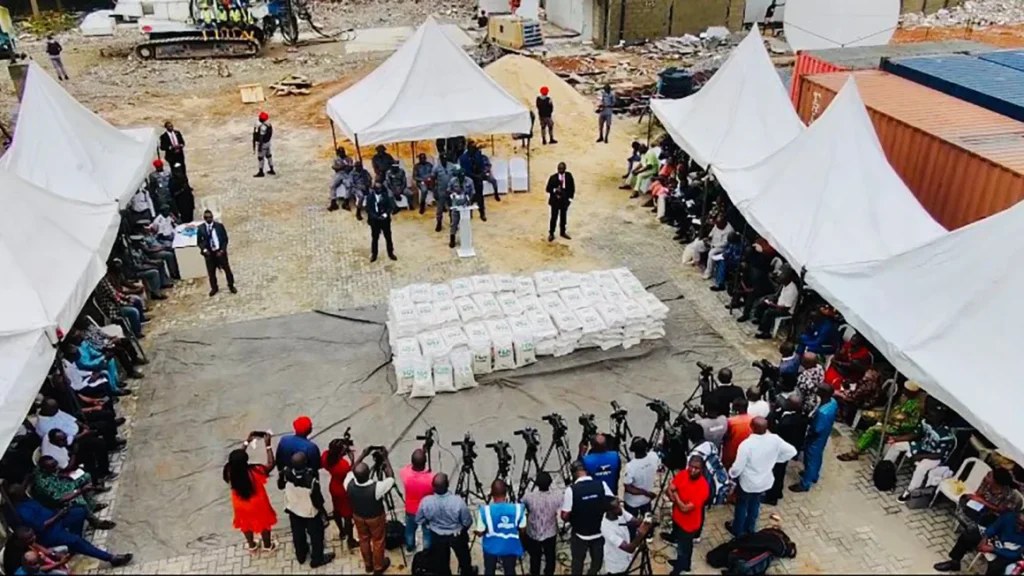The Nigeria Customs Service says it is investigating reports people were trampled to death during a sale of bags of confiscated rice amid growing anger over skyrocketing prices of food in Africa’s most populous country.
“There was a chaotic situation caused by the impatience of people to follow the laid down procedures and rules that were set up for the exercise,” a spokesperson for the service, Abdullahi Maiwada told CNN on Saturday. “I can neither confirm nor deny any deaths but we are investigating,” he added.
Long queues have formed outside the Lagos customs office since the commencement of the sale as thousands of locals struggle to grab a bag of the 25-kilogram rice selling at a discounted price of 10,000 naira ($6.80).
Some eyewitnesses said they saw people “trampled to death” Friday.
“A man just died in my hospital, he was stamped on after falling at the customs office trying to get rice. He was in the queue with his wife when he fell down and couldn’t get up on time which resulted in people stamping on him. So sad. Survived by very young children,” said one Nigerian doctor on X.
Last week, anti-government protests broke out in parts of the West African nation as the country battles one of its worst cost-of-living crises that has seen inflation accelerate to nearly 30% – the highest in 30 years.
The local currency has also significantly depreciated, losing over half its value to the US dollar following its second devaluation in less than a year.
More than 80 million Nigerians live on less than $2 a day, representing “the world’s second-largest poor population after India”, according to the World Bank.
The customs service said the distribution of the seized bags of rice was part of the government’s plan “to tackle the pressing issue of food insecurity.”
The cost of rice, a staple food in Nigeria, has surged in recent months. It is now priced at over N70,000 ($47.60) per 50kg bag, compared to a range of 45,000 to 50,000 naira previously.
The customs service says it has been confiscating contraband rice from smugglers following restrictions on foreign rice imports by the Nigerian government.
Analysts welcomed the rice distribution initiative but questioned its viability in tackling Nigeria’s worsening food insecurity.
“Interventions in terms of food supply look like a good idea but there should have been a policy rolled out to define how this will happen,” political analyst Sam Amadi told CNN.
“There is some distribution in Lagos now, what about other parts of the country? Is it just a Lagos intervention? Is it going to be a one-off or a consistent sharing and does it have the potential to make some impact?” he asked, adding that “there is a lack of intelligible criteria and framework.”
Nigeria’s President Bola Tinubu, who has faced criticism over the spike in the prices of goods and services said he is “dedicated to evolving home-grown solutions to tackle our nation’s food security challenges head-on.”
His government came under fire last November over a budget that allocated funds for purchasing SUV vehicles for the presidency, amounting to N2.9 billion ($3.6 million), and to cover the cost of renovating the president’s residential quarters, estimated at N4 billion ($5 million) as the country grapples with mounting debts.
Tinubu said he trusts the country’s central bank to fix the issue of the plummeting local currency.
The Lagos government said Thursday it was rolling out plans to address the food crisis in the state. Its governor Babajide Sanwo-Olu announced the opening of special markets “across the state to sell food items at really affordable rates.”
“We aim to serve over 500,000 Lagosians with essential food items at rates that defy inflation” in addition to the construction of food hubs, Sanwo-Olu added.
Source: CNN
